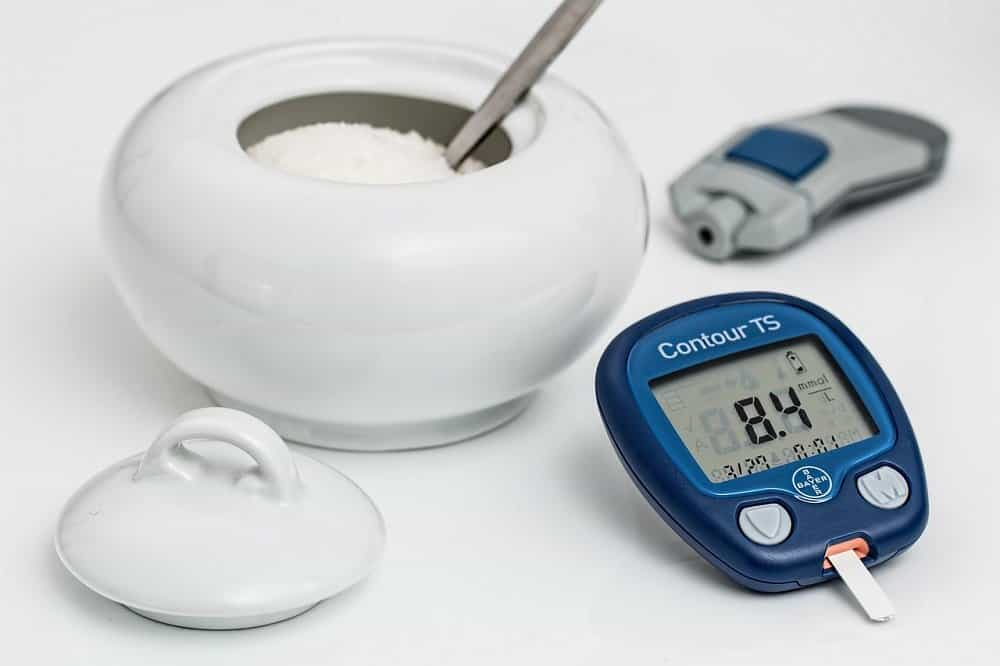Diabetes Epidemiology
Diabetes is a very common disease. New updated data from the new International Diabetes Federation (IDF) Diabetes Atlas show that more than 34 million Americans have diabetes (1 in 10 individuals), of whom approximately 90-95% have type 2 diabetes. In UK the situation is slightly better: with nearly 4 million sufferers, about one in 16 people in the UK has diabetes. Over the past decade, the trend of rising obesity has definitely increased. As a major risk factor, obesity has directly influenced the increase in cases of diabetes. But let’s get a better understanding of what the main risk factors are for the different types of diabetes.
Risk factors for type 1 diabetes
- First degree relatives (parents, siblings) with type 1 diabetes
- Autoimmune diseases (e.g., thyroiditis, rheumatoid arthritis, celiac disease, vitiligo).
- Autoimmune diseases among first-degree relatives
Risk factors for type 2 diabetes
- First-degree relatives with type 2 diabetes
- Suboptimal blood glucose or HbA1c
- Previous gestational diabetes
- Excess body weight
- Sedentary lifestyle
- Overeating
- Cigarette smoking
- Hypertension
- Low HDL cholesterol
- High triglycerides
- High uricemia or gout
- Low birth weight (less than 2.5 kg)
- High birth weight (more than 4 kg)
- Woman who gave birth to a child weighing more than 4 kg
- Advanced age
Diabetes Prevention
If in the case of type 1 diabetes there are no proven forms of prevention, neither with a particular lifestyle nor with the assumption of drugs, in the case of type 2 diabetes it is possible to resort to various preventive actions by the patient. A low-calorie diet can greatly help obese people with high blood sugar to prevent diabetes. In fact, excess weight is a major risk factor for type 2 diabetes. Consuming food in abundance, rich in sugars or animal fats determines a higher risk; vice versa, eating food rich in fiber (whole grains, legumes, vegetables) has instead beneficial effects. In addition to diet, mobility and physical activity also counteract the risk of type 2 diabetes. In the case of obese people, it is therefore advisable to carry out regular physical activity, from simple walks to sports. Pharmacological therapies (metformin, acarbose, rosiglitazone, pioglitazone), although paid for by the citizen and not by the health care or insurance system, support the prevention of type 2 diabetes.
You may also like
Diabetes: Diagnosis and Types
Diabetes mellitus is a chronic metabolic disorder that affects our body’s energy processes. Following the daily intake of food, a good portion of the nutrients are broken down into sugars (glucose), which are then transferred to the blood vessels. When the level of sugars (blood glucose) exceeds threshold levels, the pancreas kicks in. It releases… Continua a leggere Diabetes: Diagnosis and Types
Hearing loss: things to know before buying a hearing aid
Choosing a hearing aid isn’t easy, especially if you’ve never used one. They come in different shapes, colors and levels of technology.The first factor in determining which hearing aid to choose is your hearing loss, which could range from very mild to severe. Next, you need to know what you would like it to be… Continua a leggere Hearing loss: things to know before buying a hearing aid
Small Lymphocytic Lymphoma (SLL): Symptoms and Treatments, Causes and Diagnosis
Small lymphocytic lymphoma (SLL) is a cancer of the immune system. It affects infection-fighting white blood cells called B cells. SLL is a type of non-Hodgkin’s lymphoma, which along with chronic lymphocytic leukemia (CLL) indicates the same type of disease, treated the same way. Whereas in SLL, the cancer cells reside primarily in the lymph… Continua a leggere Small Lymphocytic Lymphoma (SLL): Symptoms and Treatments, Causes and Diagnosis
Small Lymphocytic Lymphoma (SLL): Stats, Causes and Diagnosis
Small lymphocytic lymphoma (SLL) is a cancer of the immune system that affects the white blood cells that fight infection, called B cells. SLL is a type of non-Hodgkin’s lymphoma, as is chronic lymphocytic leukemia (CLL). Both cancers are basically the same disease, and are treated in almost the same way. The difference between the… Continua a leggere Small Lymphocytic Lymphoma (SLL): Stats, Causes and Diagnosis
NSC Lung Cancer: the common treatments by stage
With this article we will present the different methods of treatment available today, since their treatment and their prognosis (perspectives) are often similar
